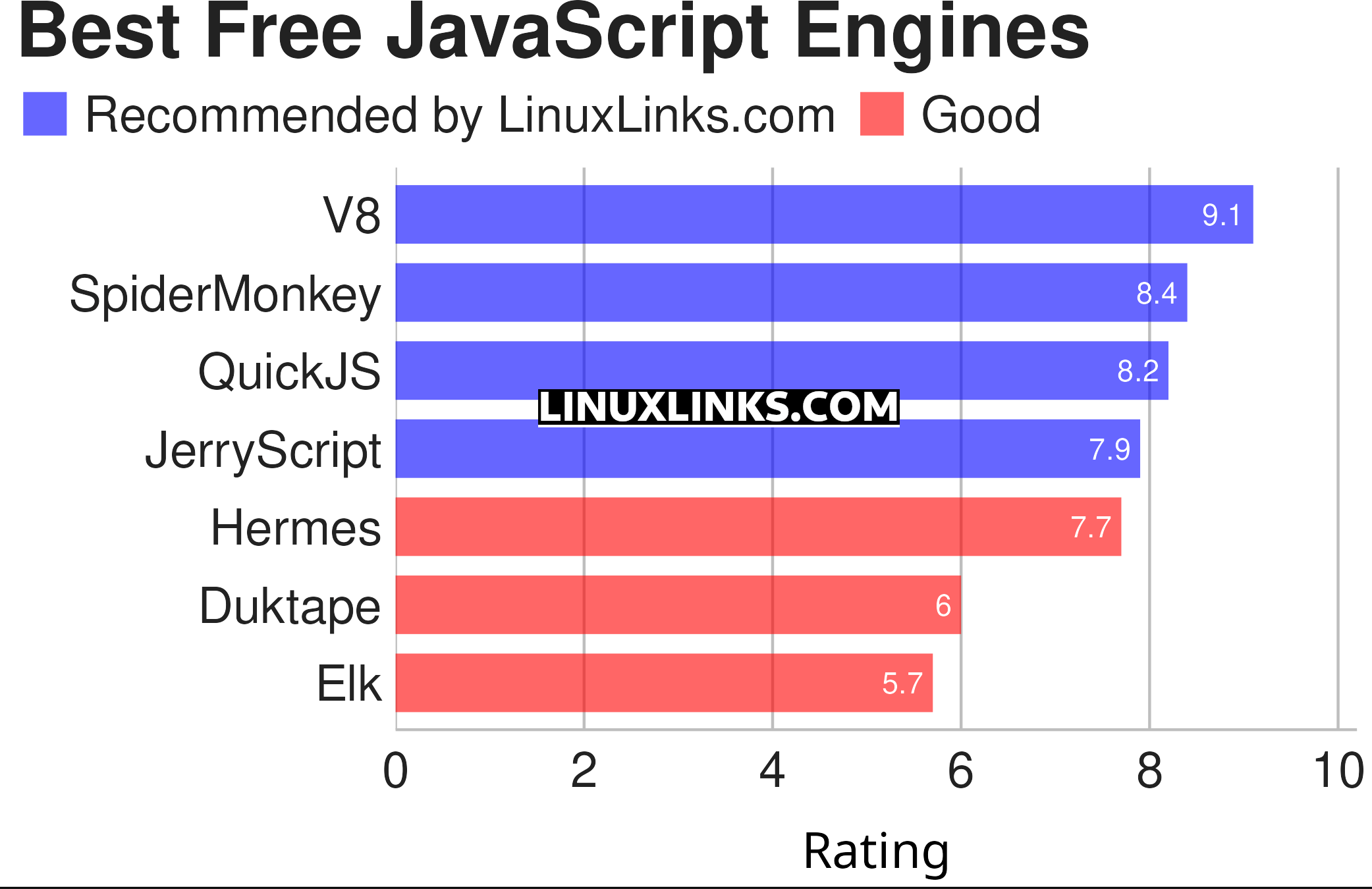JavaScript is an interpreted programming language. It means that source code isn’t compiled into binary code prior to execution. The role of the JavaScript engine is to turn plain text script into executable code. In other words, the engine is a container in which you run your program.
JavaScript engines are often developed by web browser vendors, and every major browser has one. In a browser, the JavaScript engine runs in concert with the rendering engine via the Document Object Model. JavaScript engines implement specification of the language provide by ECMAScript. Standardization enables the development of independent engines and ensures scripts give the same results no matter wherever they run.
The first JavaScript engines were mere interpreters, but all relevant modern engines use just-in-time compilation for improved performance.
The use of JavaScript engines is not limited to browsers. For example, the V8 engine is a core component of the Node.js and Deno runtime systems.
Engines which use runtime interpreters and do not compile into native machine code are excluded from this roundup.
Here’s our verdict captured in a legendary ratings chart. We feature free and open source software only here.

Let’s explore the 7 JavaScript engines. For each program we have compiled its own portal page, a full description with an in-depth analysis of its features, together with links to relevant resources.
| JavaScript Engines | |
|---|---|
| V8 | High-performance JavaScript and WebAssembly engine |
| SpiderMonkey | JavaScript and WebAssembly Engine, used in Firefox, Servo and more |
| QuickJS | Small and embeddable Javascript engine |
| JerryScript | JavaScript engine for the Internet of Things |
| Hermes | JavaScript engine optimized for React Native |
| Duktape | Embeddable JavaScript engine, focusing on portability and compact footprint |
| Elk | Tiny embeddable JavaScript engine |
This article has been revamped in line with our recent announcement.
 Read our complete collection of recommended free and open source software. Our curated compilation covers all categories of software. Read our complete collection of recommended free and open source software. Our curated compilation covers all categories of software. Spotted a useful open source Linux program not covered on our site? Please let us know by completing this form. The software collection forms part of our series of informative articles for Linux enthusiasts. There are hundreds of in-depth reviews, open source alternatives to proprietary software from large corporations like Google, Microsoft, Apple, Adobe, IBM, Cisco, Oracle, and Autodesk. There are also fun things to try, hardware, free programming books and tutorials, and much more. |
